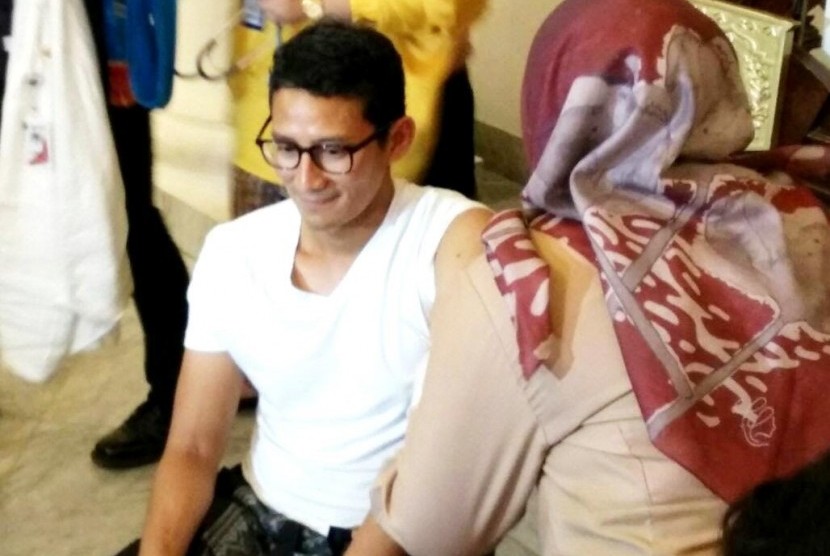Most vaccinations require repetition, including in adulthood.
REPUBLIKA.CO.ID, JAKARTA – Internal medicine specialist and vaccinologist, Dirga Sakti Rambe, said that vaccination for adults needs to be done, especially if the person has never received immunization at all. Not only that, most of the immunizations require repetition as a continuation of vaccinations as children.
“This means that as a child he has been vaccinated, but as an adult, it needs to be repeated because the vaccine protection has run out or needs to be improved again,” said Dirga in a virtual FMB discussion held by the Ministry of Communication and Informatics (Kominfo), Thursday.
In addition, the urgency of vaccination for adults is an occupational risk, for example in someone who is a doctor. Activities travelling also be another reason. For example, the Hajj or Umrah activities require a meningitis vaccine.
There are 15 types of vaccines recommended for adults, including Hepatitis A / B and tetanus. Specifically, especially during a pandemic like this time, citing WHO, Dirga said adults need to get vaccinated against influenza and pneumonia.
Vaccine effectiveness
In principle, Dirga explained, a vaccine is a substance that when given to a person will trigger immunity against a specific disease. While in normal circumstances, meaning that without vaccination, an immune person must get sick first.
“But if the disease is Covid-19 can it’s dangerous, so the main concept is that people are immune without having to get sick, “said Dirga.
The main content of the vaccine, namely the antigen, according to Dirga, is a component of viruses and bacteria which will be recognized by the body so that the body forms antibodies.
“So it does not mean that the vaccine contains an attenuated virus or killed bacteria, it is not always like that. And, of course there are other components, called adjuvants that function to increase the effectiveness of the vaccine. stabilizer, “said Dirga.
In fact, in the process, Dirga explained, the manufacture of vaccines prioritizes safety through a long process, starting from research on animals, humans, totaling tens, hundreds to thousands of people. That way you can get results whether the vaccine is safe and effective.
Furthermore, citing data from WHO, Dirga said, at least every year there are two to three million lives saved from diseases that can be prevented from immunization.
“This is a very complex biotechnological process, so that after the end result, the safety and quality are guaranteed so that it can be given in bulk,” said Dirga.
Even so, Dirga did not deny that vaccines do have side effects. He said as many as 95 percent of vaccines had very mild or local side effects, namely, pain at the injection site. Sometimes, vaccines can cause fever. However, the fever is a sign that the vaccine is working or a sign that the immune system is stimulated.
“Immunization or vaccination is not only a personal responsibility, we are not talking only to protect ourselves. However, immunization is a social responsibility because in people or residents with low immunization coverage, disease can easily spread,” said Dirga.
source: Between
– .


